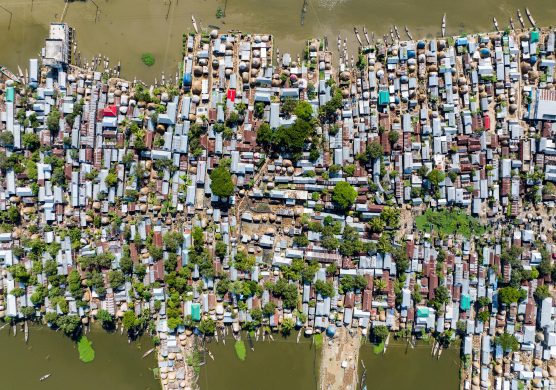Menneskehedens pres på naturens ressourcer kloden over bliver stadigt større og er nu så voldsomt, at levestandarden for de næste generationer er truet og risikerer at blive alvorligt forringet.
Det advarer Organisationen for Økonomisk Samarbejde og Udvikling (OECD) om i en ny rapport.
“Udsigten er meget mere alarmerende end hidtil beskrevet”, hedder det i rapporten, der ser på udviklingen frem til 2050.
Befolkningsvækst, global opvarmning, øget luftforurening og mange dyrearters uddøen er, hvad der er i vente, lyder OECD’s dystre prognose.
Her er OECDs pressemeddelelse torsdag med titlen “Environment: Act now or face costly consequences”
PARIS,15th March 2012: As countries struggle with the immediate challenges of stretched public finances and high unemployment, they must not neglect the longer term. Action needs to be taken now to prevent irreversible (uigenkaldelige) damage to the environment.
“Greener sources of growth can help governments today as they tackle these pressing challenges. Greening (mere miljørigtig) agriculture, water and energy supply and manufacturing will be critical by 2050 to meet the needs of over 9 billion people.” said OECD Secretary-General Angel Gurría.
“The OECD Environmental Outlook to 2050: The Consequences of Inaction” presents the latest projections of socio-economic trends over the next four decades, and their implications for four key areas of concern: climate change, biodiversity (biologisk mangfoldighed, rigdommen på arter og livsformer) , water and the health impacts of environmental pollution.
Despite the recent recession, the global economy is projected to nearly quadruple (firedobles) to 2050. Rising living standards will be accompanied by ever growing demands for energy, food and natural resources – and more pollution.
The costs of inaction could be colossal, both in economic and human terms. Without new policies:
* World energy demand in 2050 will be 80 per cent higher, with most of the growth to come from emerging economies (for North America about +15 per cent, for OECD Europe +28 per cent, for Japan +2.5, for Mexico +112) and still 85 per cent reliant on fossil fuel-based energy.
This could lead to a stunning 50 per cent increase in greenhouse gas (GHG – CO2 m.v.) emissions (udledning) globally and worsening air pollution.
* Urban air pollution is set to become the top environmental cause of mortality worldwide by 2050, ahead of dirty water and lack of sanitation.
The number of premature deaths from exposure to particulate air pollutants leading to respiratory failure (luftvejslidelser) could double from current levels to 3,6 million every year globally, with most occurring in China and India.
* On land, global biodiversity is projected to decline by a further 10 per cent, with significant losses in Asia, Europe and Southern Africa. Areas of mature forests are projected to shrink by 13 per cent. About one-third of biodiversity in rivers and lakes worldwide has already been lost, and further losses are projected to 2050.
* Global water demand will increase by some 55 per cent, due to growing demand from manufacturing (+400%), thermal power plants (drevet af fossile brændstoffer) (+140%) and domestic use (+130%).
These competing demands will put water use by farmers at risk.
2,3 billion more people than today –over 40 per cent of the global population – will be living in river basins under severe water stress, especially in North and South Africa, and South and Central Asia.
Læs videre på
http://www.oecd.org/document/34/0,3746,en_21571361_44315115_49897570_1_1_1_1,00.html
Begynd fra: “These projections highlight the urgent….”
Herfra kan man også læse hele rapporten.














